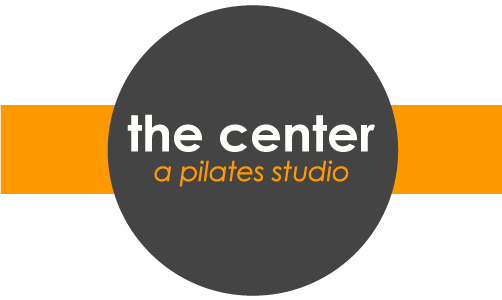 Have you experienced back pain at one time or another? Have you been told to strengthen your abdominal muscles to fix a back problem? While traditional crunches strengthen the outer layers of the abdominal musculature, they bypass the deep support structures of your back. This can place the lumbar spine in too much flexion and may even worsen your back pain, depending on what your original physical problem was. By training the deep stabilizers of the lumbar spine, pain can be alleviated and you’ll be able to return to everyday activities sooner.
Have you experienced back pain at one time or another? Have you been told to strengthen your abdominal muscles to fix a back problem? While traditional crunches strengthen the outer layers of the abdominal musculature, they bypass the deep support structures of your back. This can place the lumbar spine in too much flexion and may even worsen your back pain, depending on what your original physical problem was. By training the deep stabilizers of the lumbar spine, pain can be alleviated and you’ll be able to return to everyday activities sooner.
Pilates can help; its major focus is to strengthen the deep stabilizers of the spine and is beneficial if you are recovering from low-back injuries or experiencing low-back pain. Moira Merrithew, co-founder of STOTT PILATES® and its executive director of education, explains why Pilates is effective.
Pilates, created by Joseph Pilates, is a gentle, restorative exercise regime that suits most people in the process of recovering from injury and rebuilding their bodies. The foundational approach focuses on core strength, precision and control of movement. Combined with current exercise science, this approach is a recipe for success, for a number of reasons.
Pilates Develops Body Awareness. You need this awareness in order to recruit and strengthen the deep stabilizing muscles. You may be unaware of whether you are using your deep stabilizers or not, and this can leave you vulnerable to pain. A qualified Pilates instructor can help you learn how to effectively use your stabilizers.
Pilates Promotes Effective Breathing Patterns. Effective breathing patterns alleviate stress, which can be a major source of back pain. Conscious breathing provides inner focus, allowing you to become more aware of your body and enable recruitment of deep stabilizing muscles.
Pilates Builds Core Strength. You learn to engage the deep pelvic floor, which in turn works with the transversus abdominis and affects the positioning of other structures in the lumbopelvic region, providing support for the lower back.
For assistance in learning Pilates, seek the guidance of a qualified Pilates instructor or personal trainer.
Following these basic Pilates stability exercises will help recruit the deep core muscles, stabilize the entire spine and help decrease or prevent back pain.
Note: These exercises should be performed only with prior permission from a healthcare professional.
Ab Prep: Targets Abs
Starting Position. Lie on ba ck on mat, feet on mat, hip distance apart. Spine is in neutral position, neither arched nor flattened.
1. Inhale: nod head slightly.
2. Exhale: curl upper body off mat without pressing low back into mat; raise arms slightly off mat during curl.
3. Inhale: hold position.
4. Exhale: return to starting position.
Complete 5–8 repetitions.
Cat Stretch: Lengthens Spinal Muscles
Starting Position. Kneel with equal weight on hands and knees, knees slightly apart. Hands are directly under shoulders, and knees are directly under hips. Spine is in neutral position, neither arched nor flattened.
Exercise. To prepare, inhale.
1. Exhale: starting from tailbone, round the spine, allowing head to bend toward mat.
2. Inhale: hold position and tighten abdominal muscles.
3. Exhale: sta rting from tailbone, return spine to starting position; bring head up last, but keep eyes looking down.
rting from tailbone, return spine to starting position; bring head up last, but keep eyes looking down.
Complete 3–5 repetitions.
Hip Rolls: Targets Abs, Glutes & Backs of Thighs
Starting Position. Lie on back on mat, feet hip distance apart. Pelvis is in neutral position, neither arched nor flattened.
1. Exhale: starting from tailbone, slowly peel spine off mat until hips are lifted and weight is resting between shoulder blades.
2. Inhale: hold position and tighten abdominal muscles.
3. Exhale: starting from top of spine, slowly return to mat, lowering to starting position.
Complete 5–8 repetitions.
This handout is a service of IDEA, the leading international membership association in the health and fitness industry, www.ideafit.com.




